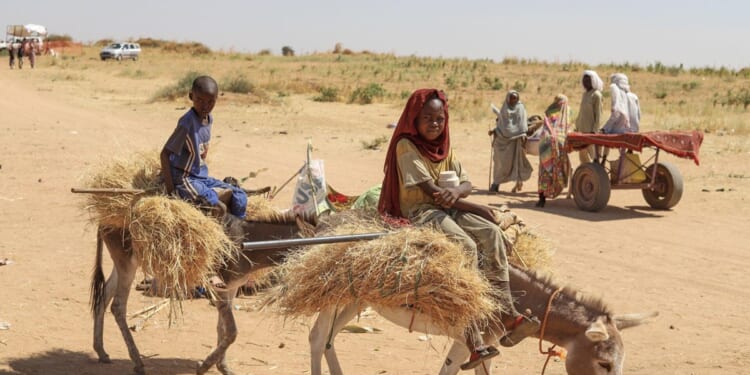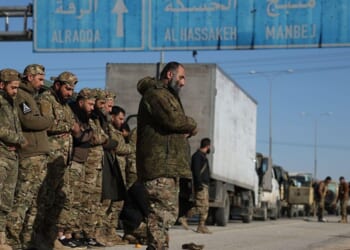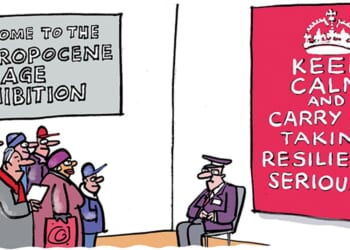THE media can manage only one big story at a time. Something is always more important than the war in Sudan — despite the fact that it is the world’s largest refugee emergency. One charity even called it the worst humanitarian crisis ever recorded. Why, then, do we hear so little of it?
Perhaps because of the weary sense of intractability which it induces. This forgotten war is a bitter conflict between the Sudanese Army and its former allies in the Rapid Support Forces, Arabs on both sides. It burst into the headlines this week when the RSF captured el-Fasher, the capital of Darfur, after an 18-month siege. Sudan has been split in two, in a strategic stalemate.
Under cover of that, the RSF is inflicting a vicious genocide upon the non-Arab black population. Tens of thousands — perhaps as many as 150,000 — people have been slaughtered, and 14 million people have been driven from their homes. This week’s massacres in el-Fasher are gruesome. So much blood has been spilled that it can be seen from satellites.
Forty years ago, when I travelled the region, conflicts between the Arab and black populations were endemic. Their roots went back to the Arab slave trade, which was longer and larger than Europe’s transatlantic traffic. As many as 18 million black Africans were enslaved, women as concubines; and men were castrated so that they could have no sons.
Twenty years ago, Arab militias were enlisted by the government to put down a rebellion by black rebel groups in Darfur. The militias, collectively known as the Janjaweed, became notorious for the brutality of their ethnic cleansing. Then, two years ago, the Janjaweed split with the Sudanese army and, transmogrified into the RSF, began a civil war characterised by systematic killings, torture, and the looting and burning of villages. Famine and rape became weapons of war. A harrowing UN report spoke of sexual assaults on children as young as one.
But the world’s television cameras stayed away, even when Donald Trump froze US aid and, in Khartoum alone, 742 kitchens serving 816,000 people closed. Yet hope for an end to the violence now rests with that same US President, who has summoned leaders from the two sides to Washington for indirect talks. Neither faction is ready for compromise. But both depend on different Arab states for supply. The Sudanese army is backed by Egypt, and the RSF is backed by the United Arab Emirates. The RSF has sent troops to fight in Yemen’s civil war on the side backed by Saudi Arabia.
These three Arab states are all key US allies — and all are susceptible to pressure from Washington, which fears that continued fighting could destabilise the wider region. The Sudanese Army has connections to radical Islamists and imports arms from Iran. The RSF has links with Moscow and the Wagner group.
It will not be simple. Even if the interests of the Arab states can be reconciled — and the self-interest of the two warring generals can be sated — there are 17 independent militias on the government side, and seven more with the RSF.
President Trump’s negotiating technique will be transactional rather than humanitarian. But he represents, for the suffering peoples of Sudan, the best chance of ending this recurring cycle of violence.

















